 INDIA’S civil aviation sector, which has been flying high for the past few years after the government opened up the sector, is suddenly facing turbulence that could result in the grounding of its ambitious expansion plans. Rising costs, especially of aviation turbine fuel (ATF), is playing havoc in the domestic skies forcing airlines to curtail their operations. Analysts expect a bloodbath in an industry that was till just a few months ago, one of the most vibrant in India.
INDIA’S civil aviation sector, which has been flying high for the past few years after the government opened up the sector, is suddenly facing turbulence that could result in the grounding of its ambitious expansion plans. Rising costs, especially of aviation turbine fuel (ATF), is playing havoc in the domestic skies forcing airlines to curtail their operations. Analysts expect a bloodbath in an industry that was till just a few months ago, one of the most vibrant in India.
Last week, the top bureaucrat in the civil aviation ministry, sounded a grim warning, claiming that the industry could be crippled with losses topping $2 billion. According to Ashok Chawla, secretary, civil aviation ministry, for financial year ended March 31, 2008, airlines in India sustained a staggering loss of a billion dollars. Total airline revenues on the domestic sector add up to about $5 billion.
If oil prices continue heading northwards, total losses could double in the current fiscal, devastating the sector. “With oil prices at an all-time high, airlines are finding it difficult to make both ends meet,” says Chawla.
Civil Aviation Minister Praful Patel, who initiated a series of reforms that have transformed the sector in recent years, is also a worried man. While last year Patel was bullish about the prospects for the sector, speaking of continued growth of 40 to 50 per cent per annum for the next few years, today he is talking of the huge losses that the industry is facing.
”The rise in the price of ATF is playing havoc with the financial health of
airlines,” he says. Patel wrote to Prime Minster Manmohan Singh last week, seeking his intervention to help save the sector from sure ‘sickness.’ He is also planning to lead a delegation of airline bosses to meet Singh and finance minister P. Chidambaram, seeking relief for the sector.
The industry has been asked to prepare a report with suggestions on how best to tackle the crisis. Airline executives are painting a grim scenario for the future, where several operators could end up bankrupt and thousands of jobs could be lost. Worse, passengers who have been enjoying the benefits of low-cost fares may abandon air travel and opt for cheaper modes like trains.
Globally too the industry is being whipped by high fuel prices. The International Air Transport Association (IATA), which met in Istanbul last week, said that two-dozen airlines have discontinued operations after going bust in the last few months. According to Giovanni Bisignani, director-general, IATA, many more bankruptcies can be expected over the coming months, especially if crude oil prices remain above $135 a barrel.
Oil prices have soared by nearly 50 per cent over the past six months. IATA estimates that if oil prices stay above $135 a barrel, globally the industry will lose about $6 billion. If the price falls to $107 a barrel, the losswould be around $2.3 billion a year. SOARING fuel prices have resulted in domestic airlines hiking fares in recent weeks. This has had its impact on traffic growth as well. For instance, air passenger traffic growth was pegged at a little over 8.5 per cent in April, as against growth of 25 to 30 per cent last year. \
ATF prices in India are among the highest in the world. Last week, under pressure from airlines, the finance ministry slashed customs duty on jet fuel to five per cent from 10 per cent. State-owned oil marketing companies promptly cut the price of ATF by 4.3 per cent, providing marginal relief for airlines.
However, airlines have refused to pass on the benefits to passengers, pointing out that the refiners have been jacking up ATF rates for the past one year. While the three public sector giants – Indian Oil Corporation, Bharat Petroleum and Hindustan Petroleum – are not free to fix the price of petroleum products like petrol, diesel, kerosene and liquefied petroleum gas (LPG), they revise the price of ATF every month, linking it to international crude prices.
On June 1, they had hiked the price of jet fuel by 18.5 per cent, and a week later reduced it by 4.3 per cent following the cut in customs duty. Oil marketing firms have raised the price of ATF four times over the past few months. According to airline officials, ATF prices have gone up by over 150 per cent in the past one year.
Of course, airlines have also been raising the fuel surcharge every time the oil companies escalate the price of ATF. Fuel surcharge has been increased five times over the past months, making air travel dearer once again, and hurting the growth of passenger traffic. ATF accounts for about half the operating costs of airlines and any increase in its price affects their profitability.
JET fuel costs are high in India – international airlines fill up abroad, where prices are cheaper by 75 per cent – because of the high domestic taxes. State governments impose hefty sales tax on ATF, ranging from a low of four per cent to as high as 30 per cent.
The industry has sought a uniform sales tax of four per cent, and even the federal aviation ministry wants such a reasonable tax regime. The ministry has called a meeting of state finance ministers later this month, where it will seek a uniform and moderate sales tax regime.
Airlines have also decided to hit back, cutting back on services to destinations where sales tax on ATF is high. According to Wolfgang Prock-Schauer, CEO, Jet Airways, the airline will curtail its domestic expansion because of the high cost of jet fuel. Domestic airlines will stop services on unviable routes. All airlines have decided to slash flight capacity by up to 20 per cent, stopping all non-profitable operations, especially to states that charge high sales tax on fuel. Airlines are also demanding that the government should allow all operators to start international services, and do away with the rule that only operators with a minimum five years’ experience can launch overseas operations. This would help them to pick up cheaper fuel abroad and cut their operational costs.
Airlines are also demanding that the government put pressure on the new private airport operators, seeking lower charges for landing, navigation, parking and user development fees. Mumbai and Delhi airports have already been privatised, while two new greenfield airports have become operational at Bangalore and Hyderabad, both promoted by private groups.
With India’s busiest airports now being privatised, airlines are being forced to pay market-determined rates for services at these airports. On its part, the government has promised to introduce a performance-based navigation system at Delhi, Mumbai and Ahmedabad airports from August, which would increase the number of aircraft movements at the busy airports. The system would reduce the minimum distance between two aircraft at airports, ensuring faster movement.
Aircraft heading for Mumbai and Delhi have to hover over the airports for 40 to 45 minutes because of congestion, which results in wastage of fuel. Flying around in circles over airports results in the burning of 2.5 tones of ATF – worth nearly Rs200,000 – every hour.
With the new navigation system, aircraft movement at the country’s two busiest airports is expected to improve by 20 per cent. Mumbai and Delhi airports each handle about 40 flights an hour at present.
While these measures could result in minor savings, the industry is unlikely to fly out of the turbulence in the near future. Stormy days are indeed ahead for the Indian civil aviation sector















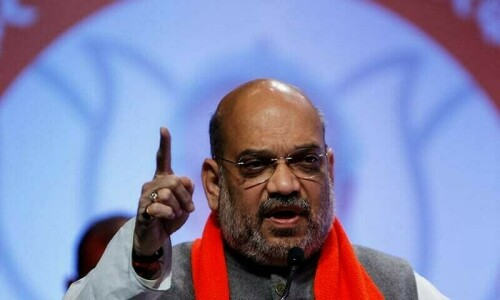
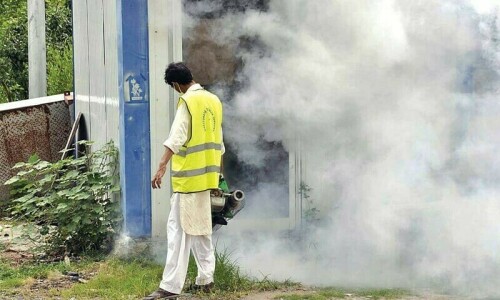
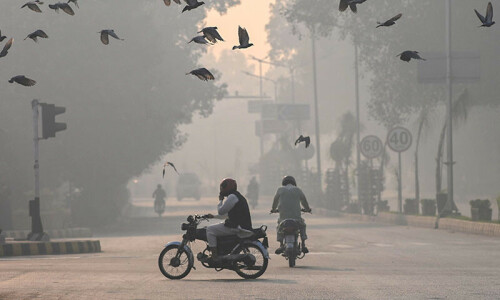

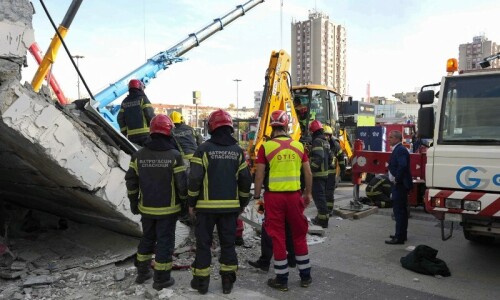
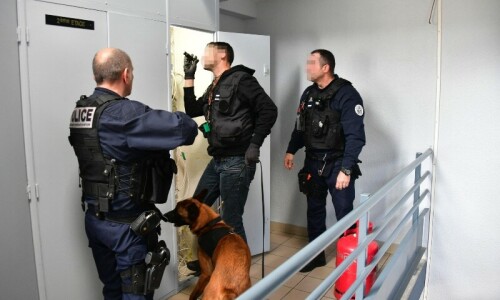






















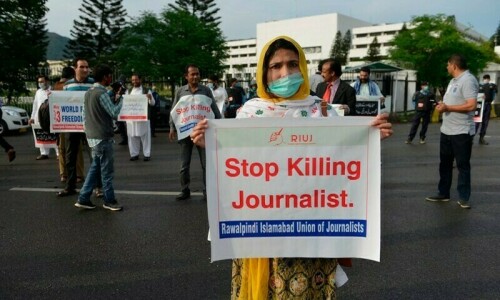


Dear visitor, the comments section is undergoing an overhaul and will return soon.